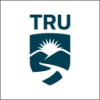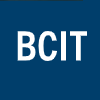DUTIES
Students explore how to think about and practice organizing in complex workplace environments. They utilize various conceptual tools and theoretical frameworks to systematically investigate organizing processes and contexts and solve practical problems.
- Topics include organizations and organization theory; strategy, organizational design, and effectiveness; fundamentals of organizational structure;
- the external environment; inter-organizational relationships; manufacturing and service technologies; organizational culture;
innovation and change; decision making; and conflict, power and politics; and designing organizations for international environments.
Open Learning Faculty Members are teaching staff in the Open Learning division of TRU, and the role of the Open Learning Faculty Member is to actively encourage, support and guide students toward success in their academic studies.
Open Learning Faculty Members must be skilled in teaching, fully knowledgeable of the subject matter and demonstrate a positive, open and caring attitude in all interaction with students.
Responsibilities of the Open Learning Faculty Member (Web) include but are not limited to :
- Administrative set up and record keeping
- Initiating and maintaining regular contact with the student as specified in the collective agreement
- Responding to all student queries by phone, e-mail or other method as appropriate within the time frame outlined in the collective agreement.
- Marking all assignments, posting results, and providing prompt feedback
- Marking exams and posting results
We anticipate 10 - 15 students in this course per year. These numbers are only estimates and actual numbers for the course may be greater or less than the estimated numbers.
QUALIFICATIONS
- Doctorate degree with a specialization in organizational theory or related field, a master’s degree in the subject area may be considered if the candidate has substantial teaching experience.
- On-going record of related research and / or teaching scholarship in the form of peer-reviewed publications during the past five years.
- Proven course facilitation skills in a face-to-face or distance delivery environment, including the ability to respond quickly, accurately, and cordially to student questions;
to coordinate student group work and mediate any academic or interpersonal problems; and mark assignments and exams in a timely and consistent manner.
Have direct experience working with current educational technologies, tools and Learning Management Systems.
The Open Learning Faculty Member must :
- Be knowledgeable and experienced in the subject matter of the course
- Have received training or have successful experience in the active facilitation of learning in a collaborative online environment
- Have direct experience working with current educational technologies, tools and Learning Management Systems
- Have demonstrated knowledge of effective pedagogy in the use of current educational technology and tools
- Have demonstrated skills and abilities in the delivery of flexible learning materials, the application of instructional technology and in the application of adult learning principles
The pay for Open Learning Faculty Members varies based on several factors including the number of students in the course, the type of work, the type of course and the number of assessments completed by students in the course.
The total pay includes amounts based on hourly rates as well as set dollar amounts for certain types of work. For more information, please refer to the TRU / TRUOLFA Collective Agreement : Agreement 2019







